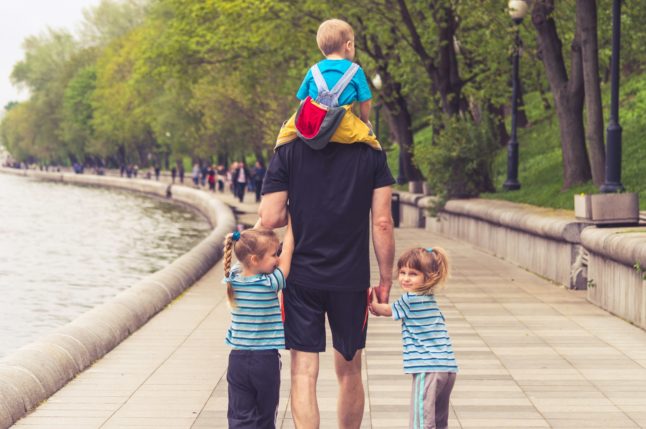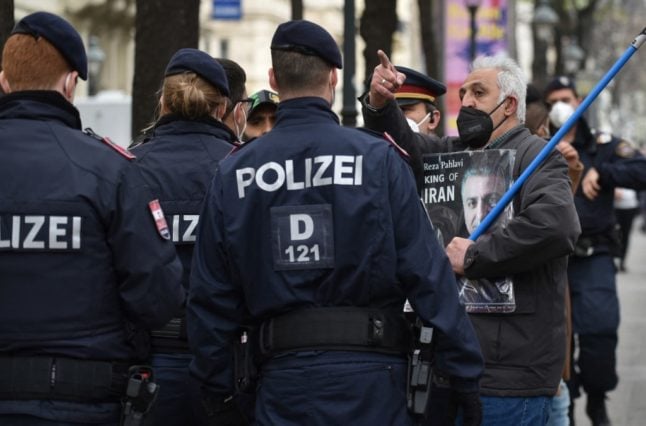Austria Proposes Complete Phase-Out of Russian Gas by 2028
According to a draft law submitted by Energy Minister Leonore Gewessler, Austria aims to end its dependence on Russian gas imports.
The proposal, currently under review by the coalition partner ÖVP, calls for a mandatory phase-out of Russian gas by 2028. Gas suppliers would be required to demonstrate a growing share of non-Russian gas supplied to customers, reaching 40 percent in year one and 100 percent by 2027/28.
This move comes after a period of high dependence on Russian gas, with a record 98 percent share in December 2023. The war in Ukraine further highlighted the vulnerability of this reliance.
The draft law also includes measures to prevent future supply disruptions. Gas companies would need to prove they can maintain supply even if their biggest supplier fails unless they purchase only non-Russian gas or have a sufficiently diversified portfolio.
The strategic gas reserve would also be extended as an emergency buffer until 2027.
The ten weirdest taboos you must never break in Austria
Blending in with the locals in a new country can be challenging. We will guide you through some Austrian taboos to keep in mind.
Austrian Managers Support Paternal Leave, But Reality Lags Behind
Austrian managers overwhelmingly back fathers taking parental leave, according to a new study, ORF reported. However, traditional gender roles are hindering progress, with men who take leave seen as less ambitious.
The Austrian Institute of Family Research (ÖIF) surveyed managers’ attitudes towards fictitious male employees who wanted to reduce work hours or take a year of parental leave. While managers expressed support, the ÖIF cautions this may not reflect real-world behaviour.
The study highlights a gap between perception and reality. Half of the managers believe mothers are better suited for childcare, and long work hours are considered dedication. This discourages fathers from taking leave despite a growing desire to be involved with their children.
ÖIF suggests that dismantling traditional gender roles and work norms is critical to achieving true gender equality in parental leave. The study also found that managers are more supportive when fathers opt for part-time work over more extended leave periods.
Upper Austria Aims to Be a Model Child Protection Province
Upper Austria is taking steps to become a leader in child protection and children’s rights. The state drafted a new Child and Youth Welfare Act, prioritising preventative measures.
The current law, which has been in place for a decade with minor revisions, needs a complete overhaul, says Michael Lindner, the state councillor responsible. The new act promotes early intervention and accessible support services.
“We want to reach families as early as pregnancy and a child’s first years,” Lindner explains. Regional networks will provide resources to ensure children grow up safe and secure. “Parents have the primary responsibility for raising their children,” he adds, “but our job is to empower and support them.”
The draft bill goes before the state parliament this autumn, with a final vote expected by year-end.
E-biker Dies in Downhill Accident at Rachau, Styria
A 60-year-old man from Murtal district died Monday afternoon in a downhill biking accident at Rachau.
The man was riding an e-bike on a challenging trail in the Steinplan area when he fell while jumping a ramp. He sustained fatal head injuries despite wearing protective gear.
Two other riders discovered the man and attempted CPR, but he was pronounced dead by emergency medical personnel. The Knittelfeld mountain rescue team recovered the body.
Two Teenage Girls Arrested for Car Vandalism Spree in Linz
Two teenage girls were arrested on Tuesday after allegedly smashing the windows of 13 cars and stealing items from them in Linz on Monday night, ORF reported.
The 12-year-old and 15-year-old girls targeted parked vehicles, mainly taking small change and electronic devices, according to police. A third suspect is still at large.
Police were able to quickly identify the two girls who were apprehended at a residential group. The girls reportedly admitted to the crimes, claiming they were bored.
Linz police are now investigating the case.
If you have any questions about life in Austria, ideas for articles, or news tips for The Local, you can contact us at news@thelocal.at or leave a comment below.



 Please whitelist us to continue reading.
Please whitelist us to continue reading.
In your list of famous Austrian people you forgot to mention Arnold Schwarzenegger
Hi! We focused mostly on historical figures, but Schwarzenegger is mentioned in another list we have of cultural icons: Falco to Schwarzenegger: Six Austrian cultural icons that you need to know